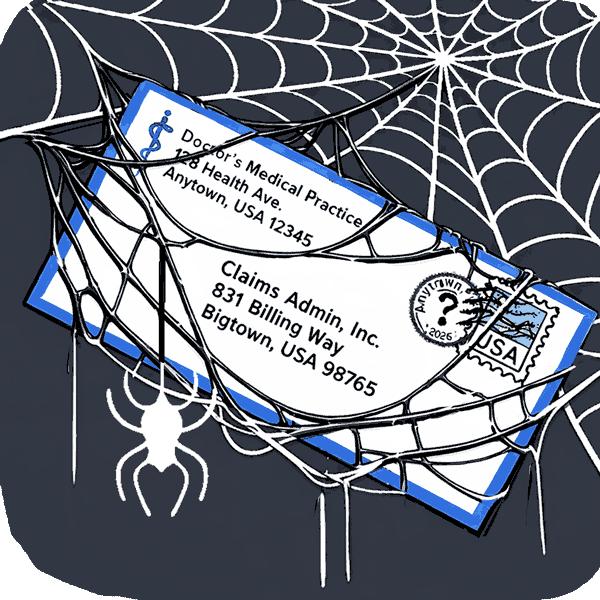e-Billing Data: Worst Payer EDI Grades

Yesterday, we praised the insurers, employers, and Third-Party Administrators (TPAs) that accept and properly process electronic bills (e-bills) with near-perfect consistency.
Today, it’s time to look at the other side of the coin: payers that make workers’ comp an administrative slog for doctors by failing at Electronic Data Interchange (EDI).
Below we list the 17 payers (aka claims administrators) that earned an ‘EDI Grade’ of ‘F’ and dive deeper into the following payers’ abysmal performances:
- ESIS
- AmeriTrust
- Marriott
To be clear, this kind of failure is a choice. As our ‘A+’ payers demonstrate, there’s no legitimate reason to be this inept at handling e-bills, unless there’s a TPA in Amish country we’re not aware of.
Every claims administrator (and network payer) we list below makes it harder for injured workers to get treatment by making it harder for doctors to treat them. Their failures have a real impact on real people caught up in a system that doesn’t need additional friction.
Whether it’s laziness, lack of willingness, incompetence, or some combination of the three, it’s time for these payers to step up or get out of the game.
Workers’ Comp EDI Failures
Our EDI Grades represent each payer’s performance in key areas, from e-bill acceptance rates to the delivery of electronic Explanations of Review (e-EORs), weighted according to the administrative impact on providers.
These data come from millions of bills our providers submit over the preceding 365 days, and are updated daily. Below, we sorted our Claims Administrator & Network Directory homepage by EDI Grade to reveal every payer with a well-deserved ‘F.’
Among them are major insurers, employers, TPAs, and network payers. All of them are a massive bottleneck in the system, to the detriment of providers, employers, and injured workers.
Below, we zoom in on some of the payers whose EDI failures impact the system.
F-reaking Terrible TPA: ESIS
ESIS is among the largest TPAs in our system, handling nearly 78,000 bills on behalf of various insurers and employers. When ESIS drops the ball, it creates major work for thousands of providers nationwide, draining practice resources that could otherwise help injured workers.
Although ESIS does well in accepting and acknowledging receipt of e-bills, they consistently cake the bed where it counts: returning e-EORs.
Because ESIS can’t figure out how to send a valid and timely ‘835’ file, practices across the US have to manually upload payment details daily, losing precious hours to an avoidable problem.
F-umbling Insurer: AmeriTrust
AmeriTrust Group, Inc. is a major insurer with a significant workers’ comp footprint. Sadly, that foot stumbles far too often when it comes to EDI.
AmeriTrust accepts e-bills and promptly sends acknowledgement receipts. However, the insurer improperly rejects e-bills with inexcusable frequency. Worse, it has an appalling 32% success rate in sending e-EORs. That’s no way to earn the “Trust” of doctors.
F-or F’s Sake: Marriott
Marriott is a gargantuan self-insured employer responsible for managing the claims of its employees across the nation. And while various states enforce financial solvency standards to let employers self-insure, there’s apparently no requirement to have your EDI act together.
Once again, the problem isn’t with accepting or acknowledging bills. It's responding appropriately with an e-EOR, something Marriott does only 19% of the time. Seriously?
We see major insurers, employers, and TPAs that have no problem managing providers’ e-bills and upholding their EDI obligations. Every payer we list in this article has failed to put in the work to fix their subpar systems, which impedes doctors’ ability to help injured workers.
Once again, we ask: what’s their excuse?
daisyBill makes sure your end of the e-billing transaction is 100% solid, every time. Click below to learn more:
BILL BETTER WITH DAISYBILL
DaisyBill provides content as an insightful service to its readers and clients. It does not offer legal advice and cannot guarantee the accuracy or suitability of its content for a particular purpose.

.gif)




